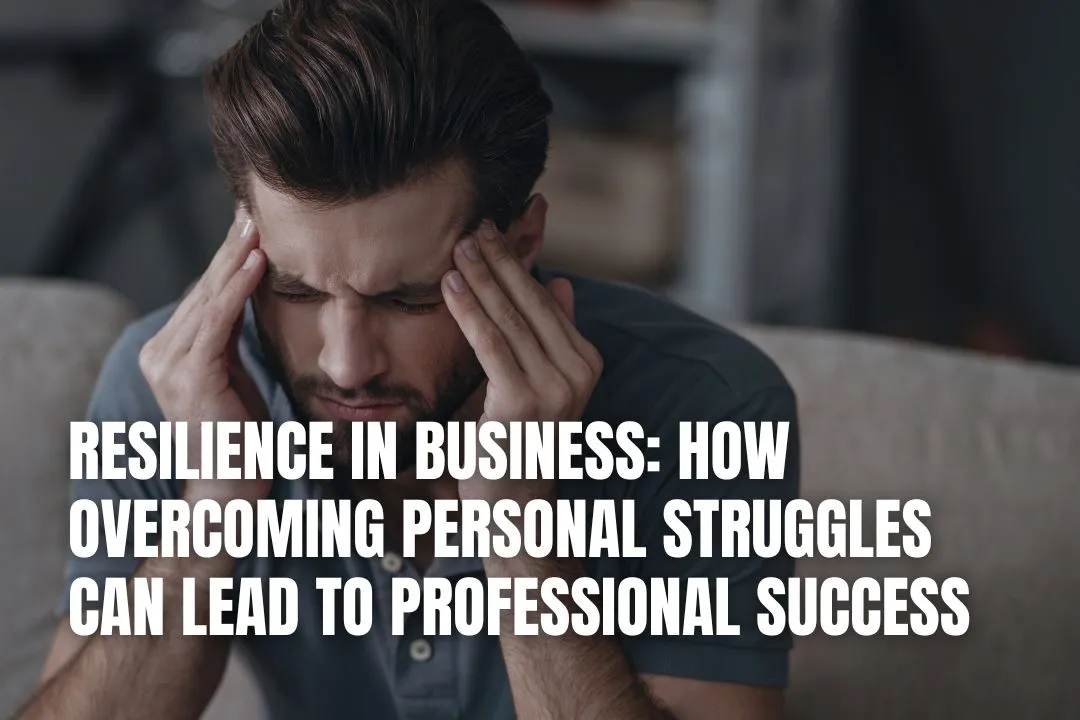
Editorial Disclaimer
This content is published for general information and editorial purposes only. It does not constitute financial, investment, or legal advice, nor should it be relied upon as such. Any mention of companies, platforms, or services does not imply endorsement or recommendation. We are not affiliated with, nor do we accept responsibility for, any third-party entities referenced. Financial markets and company circumstances can change rapidly. Readers should perform their own independent research and seek professional advice before making any financial or investment decisions.
In today's unpredictable market, resilience is a strategic asset. Leaders who've faced personal setbacks often develop the adaptability and emotional intelligence necessary for sustainable success. This article examines how personal resilience strengthens business continuity and empowers professionals to build resilient organisations.
Every entrepreneur or executive who has reached notable success has a story of struggle. These aren't just anecdotes; they're valuable insights into how personal adversity can develop a stronger, more resilient workforce and a more resilient organisation.
For instance, leaders who have faced hardship are often better equipped to handle unexpected disruptions, make tough decisions, and empathise with their teams. They understand that change is inevitable and that learning to embrace change, not resist it, is key to building resilience in both life and business.
By developing personal resilience, leaders are better prepared to strengthen resilience in the workplace, foster employee engagement, and lead with authenticity in times of crisis.
Whether you're an entrepreneur, mid-level manager, or just starting your career, personal resilience is essential. Here's how you can cultivate it:
Resilient individuals often drive business resilience. When leaders apply the lessons they've learned from personal struggles, they're more adept at ensuring business continuity during crises. Whether it's responding to natural disasters, economic downturns, or a sudden financial loss, resilient leaders have the foresight and adaptability to keep the organisation moving forward.
This is where business continuity plans play a vital role. Leaders who understand the value of preparation often invest in building flexible systems, reinforcing key processes, and prioritising financial stability, ensuring the company remains well equipped to handle unexpected challenges.
Resilience also plays a central role in talent management. During periods of market shifts or technology advances, companies that focus on continuous learning, addressing skill gaps, and cultivating an adaptable workforce are more likely to stay ahead of industry trends.
A resilient organisation doesn't just react, it evolves. It integrates flexibility into its culture, supports its people, and continuously adapts its strategies.
Here are a few strategies for fostering resilience across an organisation:
Psychological Safety is the bedrock of organisational resilience. When employees feel safe to express themselves and acknowledge mistakes, they are more likely to innovate and contribute to solutions. This trust is essential for a team to pivot quickly and effectively in the face of a challenge.
In times of crisis or change, information serves as a powerful tool for easing anxiety and fostering trust. Leaders should be transparent about the situation, communicate consistently, and create channels for two-way communication. This ensures everyone feels informed and heard, fostering a sense of shared purpose and commitment.
Resilience isn't a top-down mandate; it's a collective effort. Invest in leadership development programs that extend beyond the C-suite to include front-line managers. Empowering employees at every level to make decisions and take ownership of their work minimises bureaucracy and facilitates a more agile response to new challenges.
A resilient workforce is a healthy one. Offer resources like mental health support, flexible work arrangements, and wellness programs. By prioritising employee well-being, you demonstrate that the company values its people, which in turn strengthens their loyalty and ability to handle stress.
Promote a culture where people see mistakes as opportunities for learning rather than as failures. Offer continuous training and development to enable employees to gain new skills and adjust to evolving industry trends. This not only closes skill gaps but also prepares the workforce to be more adaptable and confident in the face of change.
Resilience is often found in the strength of relationships. Encourage collaboration and teamwork across departments. When employees have strong social connections and feel a sense of belonging, they are better able to support each other and work together to solve complex problems.
While culture is vital, preparation is equally important. Create and regularly test detailed business continuity plans that address various potential disruptions. Having a clear, well-rehearsed plan ensures that the organisation can respond proactively rather than reactively when a crisis hits.
There's no denying that life and business will throw curveballs. From economic downturns to internal crises, no company is immune to change. But the organisations and individuals who prepare, adapt, and respond with resilience will always emerge stronger.
Whether you're recovering from a financial loss, responding to a major disruption, or simply trying to stay focused through burnout, remember this: your personal growth feeds your professional power. And in business, that can make all the difference.
Personal resilience helps leaders handle unexpected disruptions, make difficult choices, and show empathy to their teams. It teaches them that change is constant, which is vital for building strong organisations.
You can improve personal resilience by developing emotional intelligence, continuously learning new skills, maintaining a long-term perspective during setbacks, and building strong support networks with mentors or coaches.
Resilience ensures businesses can keep operating during crises like economic downturns or natural disasters. Resilient leaders prepare with flexible systems, strong processes, and financial stability to manage unexpected challenges effectively.
Organisations can build resilience by fostering psychological safety, promoting open communication, empowering leaders at all levels, investing in employee well-being, encouraging a growth mindset, and developing strong business continuity plans.
Psychological safety means employees feel safe to express ideas and admit mistakes without fear. This trust is fundamental for innovation and allows teams to adapt quickly and effectively when facing challenges.